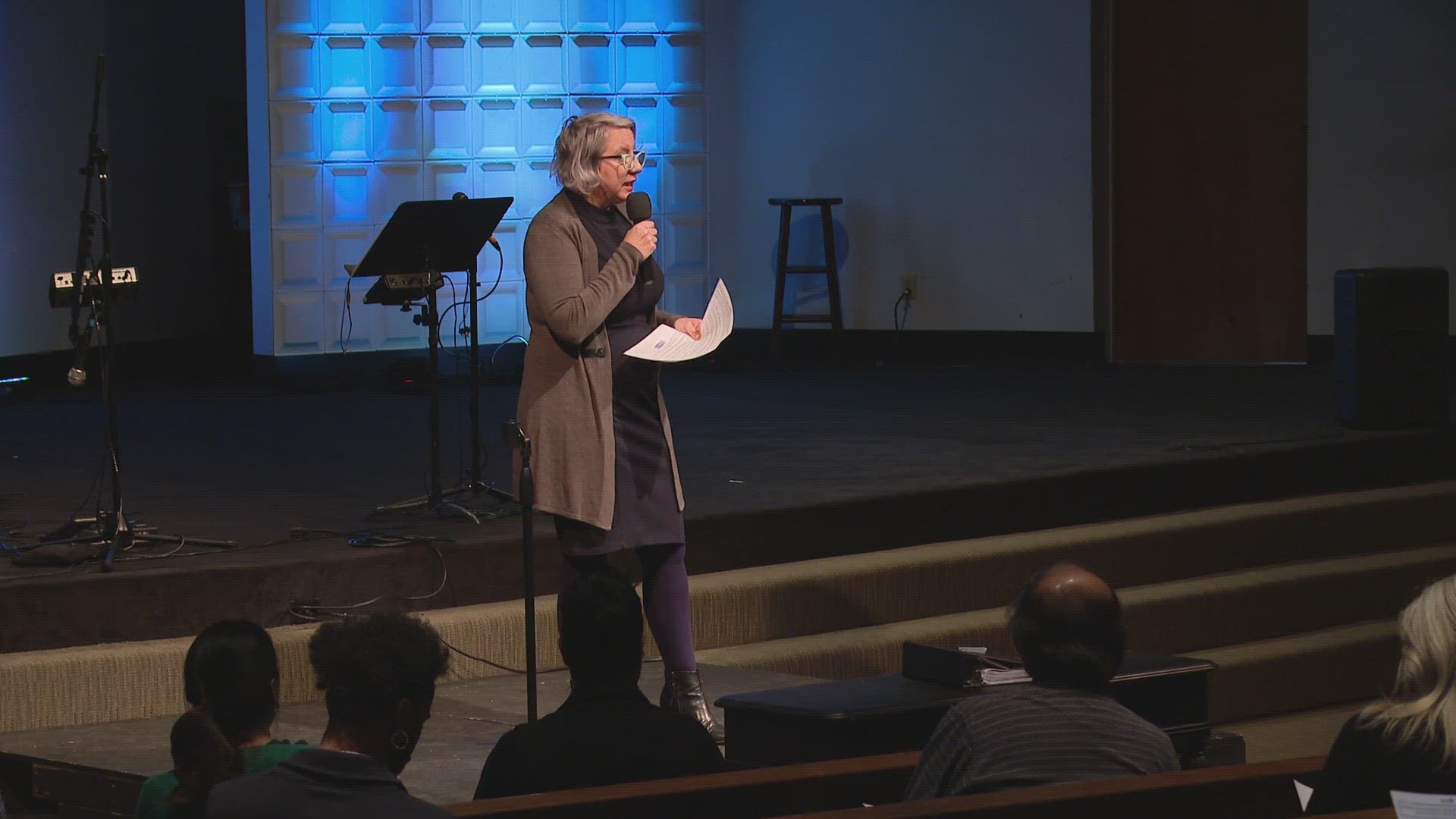ST. LOUIS — Calls for action from people who live along Coldwater Creek.
On Thursday night, they voiced their frustrations after learning the cost of cleaning up radioactive contamination doubled and would take more time than originally thought.
They shared their personal stories of growing up along Coldwater Creek and took a moment to share their questions and hopes for a resolution.
"My sister was 11 years old and had cysts covering her ovaries. My 9-year-old neighbor had cysts covering her ovaries. Fifteen people on my street alone had already passed away from cancers in 2012 when I learned about this issue,” Karen Nickel told the crowd.
She moderated the event at Trinity Church in Florissant, Missouri.
"That creek ran right behind our house. It flooded into our yard all the time, into the neighborhood all the time … we spent every single day in that creek in the summertime, every single day. We swam in it. We rode bikes in it,” a woman told the crowd.
"[M] high school senior graduated on June 3. On June 8, she landed in the ICU. A couple of days later they diagnosed her with angiosarcoma stage 3 cancer of the heart. What resources are out there for families like mine who don't know where to go?” a mother asked. "I'm a single mom. My husband passed away 10 years ago from colon cancer. Can't work. How do we live?"
Story after story poured in as residents spoke out a day after a new report from the nonpartisan United States Government Accountability Office (GAO) estimated the cost to clean up radioactive contamination will cost more than $400 million. The 83-page report also suggested the cleanup would take another 15 years to finish.
Sen. Josh Hawley's proposal to get money for victims cleared in the Senate. A vote in the House could happen soon.
A staffer from Rep. Cori Bush's office told the crowd that the U.S. Army Corps of Engineers (USACE) needed to do more.
"There's money on the table not being used to hire more staffers and contractors to get this waste out quicker because we want it out of our community now. It's been here for a long time,” Danielle Spradley said.
The USACE said it is taking a look at the GAO report and its recommendations.
Officials blame inflation for the skyrocketed cleanup cost.

